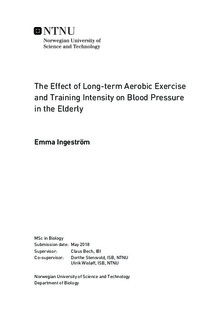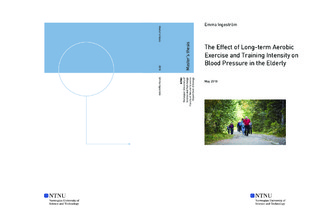| dc.description.abstract | The results indicate that aerobic exercise of different training intensities, high-intensity interval training(HIIT) and moderate-intensity continious training (MICT), reduce average blood pressure in the eldery. After 3 years, average blood pressure was significantly lower within the exercise intervention groups, HIIT and MICT, and the control group. Three years of aerobic exercise with HIIT reduced average blood pressure in comparison to aerobic exercise with MICT and control without supervised exercise. Thus, the effect of long-term aerobic exercise in the elderly population appears to be intensity dependent. In addition, aerobic exercise with HIIT, seems to be the superior nonpharmacologic strategy to treat and control hypertension in elders, at least in comparison to aerobic exercise with MICT and the control. Aerobic exercise with HIIT, demonstrated a promising potential to treat hypertension stage 2 and prevent the progression of hypertension stage 1 to stage 2 in hypertensive elders without prescribed antihypertensive mediation. In addition, long-term aerobic exercise with HIIT may also provide a superior improvement in the control rate of hypertension in hypertensive elders with prescribed antihypertensive medication. | |

